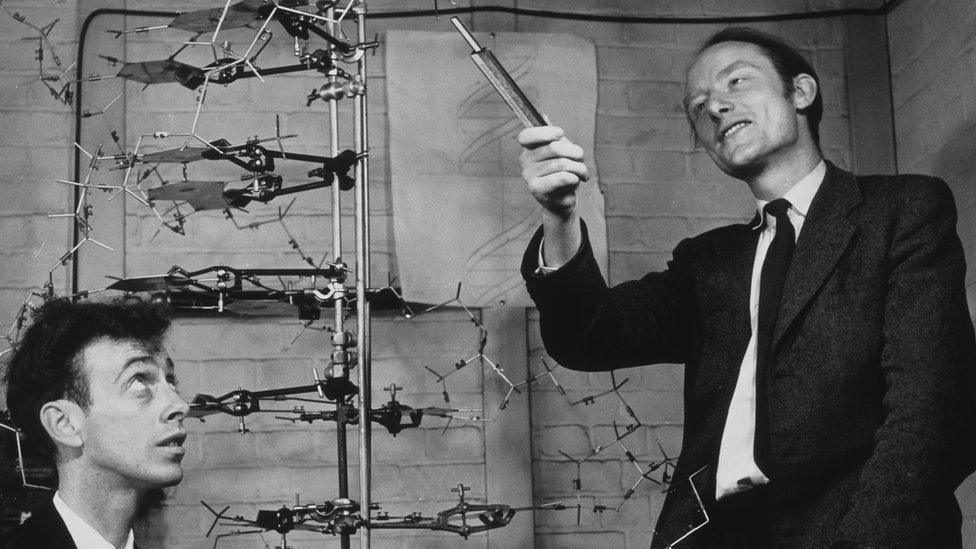Cambridge pub where DNA announcement was made is added to walking tour
- Published
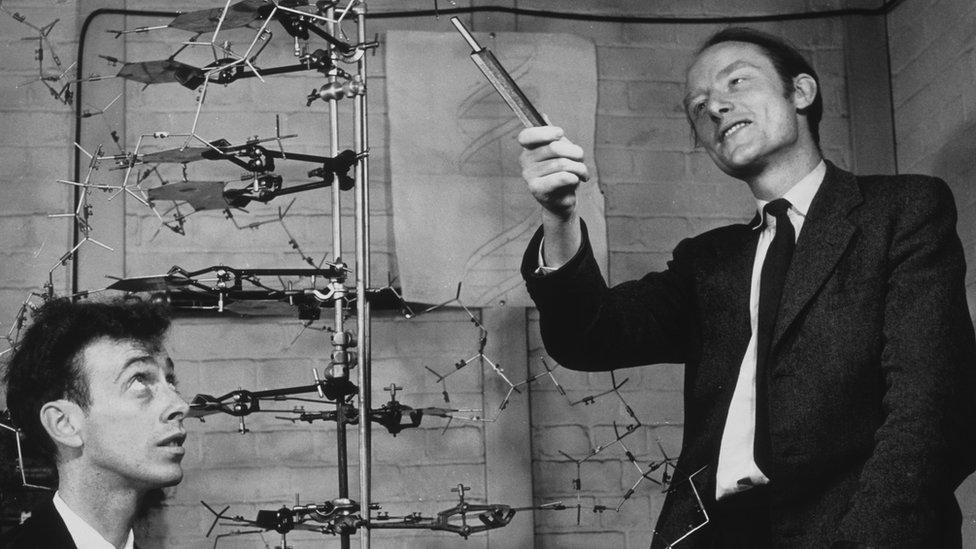
James Watson (left) and Francis Crick worked at the nearby Cavendish Laboratory in Cambridge
The pub where the discovery of DNA was announced has been added to a historic walking tour.
The Eagle in Bene't Street, Cambridge, is one of the university town's best known pubs.
In February 1953, a jubilant Francis Crick walked into this Grade II listed building and proclaimed he and James Watson had "found the secret of life".
The pub is one of six hostelries in the city chosen by Historic England for its Cambridge pub walk, external.
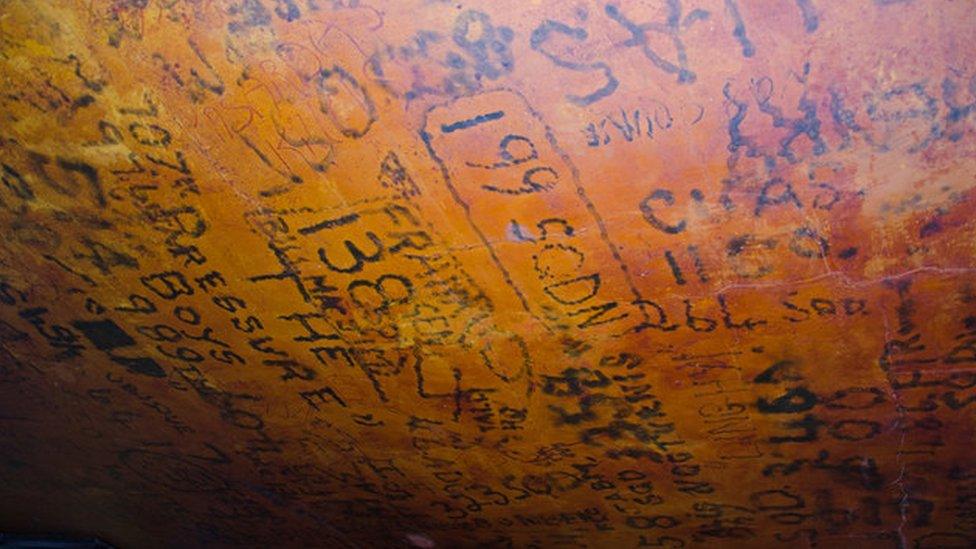
Allied servicemen wrote on the ceiling in The Eagle's "RAF Bar" during World War Two
The pub opened in the 17th Century and was originally called The Eagle and Child.
It was a regular haunt for RAF servicemen during World War Two.
It was also the "local" for scientists such as Crick and Watson, working at the University of Cambridge's Cavendish Laboratory.
Crick and Watson discovered how DNA (deoxyribonucleic acid) carried genetic information.
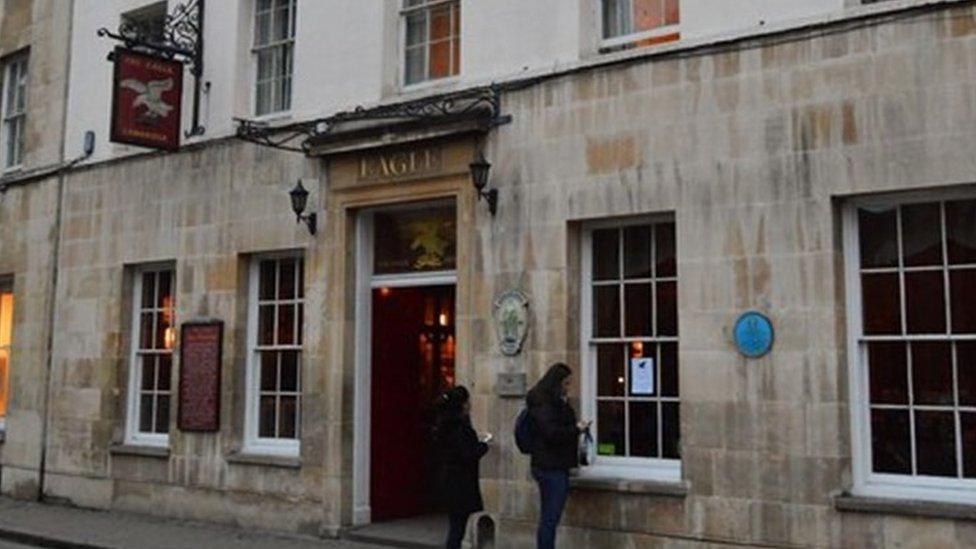
The Eagle Pub dates back to the 17th century and is on Bene't Street, Cambridge
The other watering holes on the tour are:
10 Peas Hill, now the Pint Shop, which was once home to the novelist E M Forster
The Pickerel Inn, which dates from 1608 and could be the "oldest licenced ale house in the city"
The Baron of Beef, where Douglas Adams, the creator of The Hitchhiker's Guide to the Galaxy, is thought to have drunk
The Mitre
Bath Hotel
Tony Calladine, Historic England regional director, said: "Our historic pubs have been part of the fabric of life, and at the heart of communities, for generations."

Follow East of England news on Facebook, external, Instagram, external and X, external. Got a story? Email eastofenglandnews@bbc.co.uk, external or WhatsApp 0800 169 1830
Related topics
- Published16 November 2023
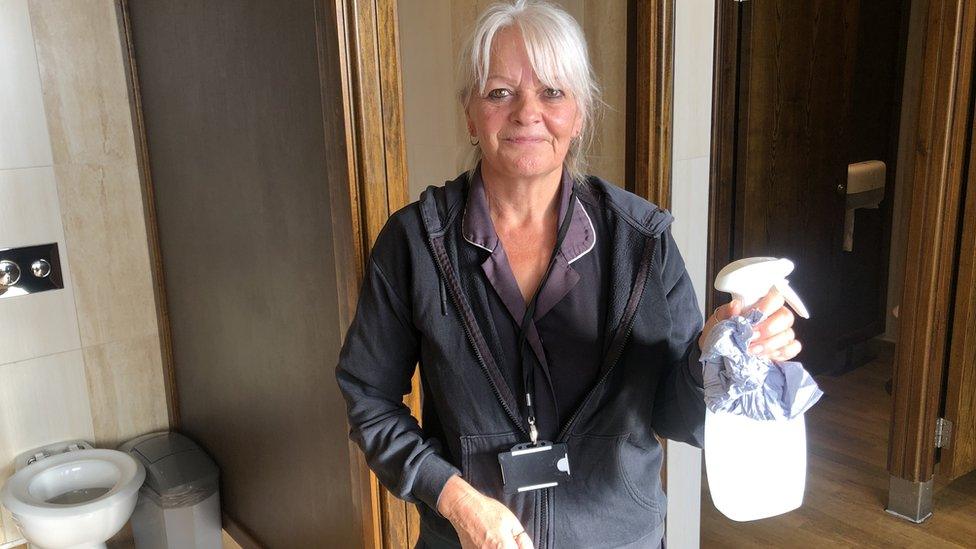
- Published3 November 2023
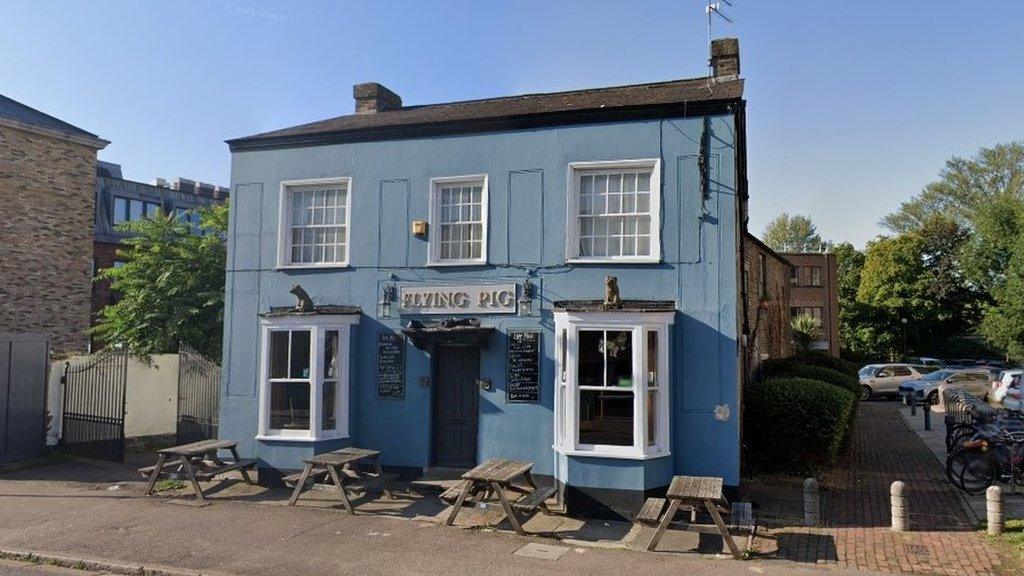
- Published11 January 2023
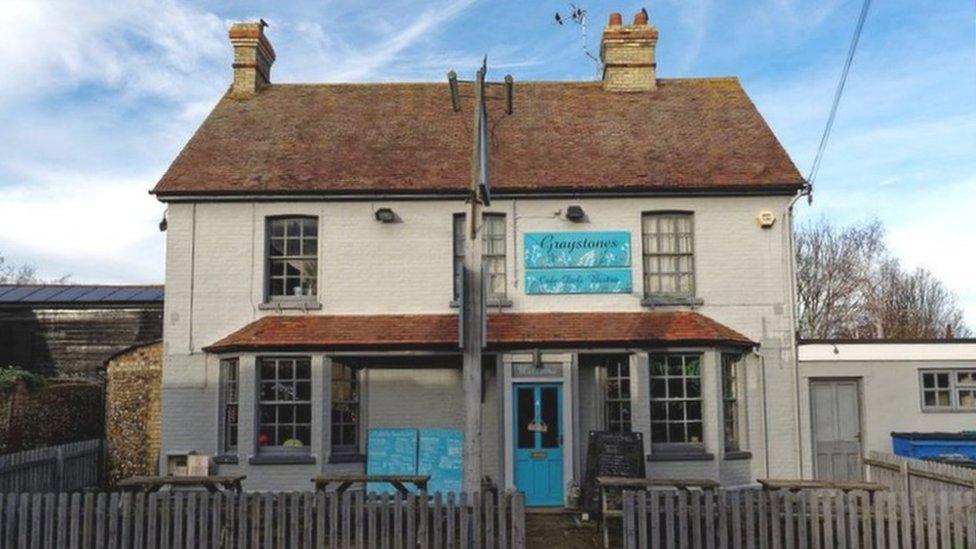
- Published4 January 2023
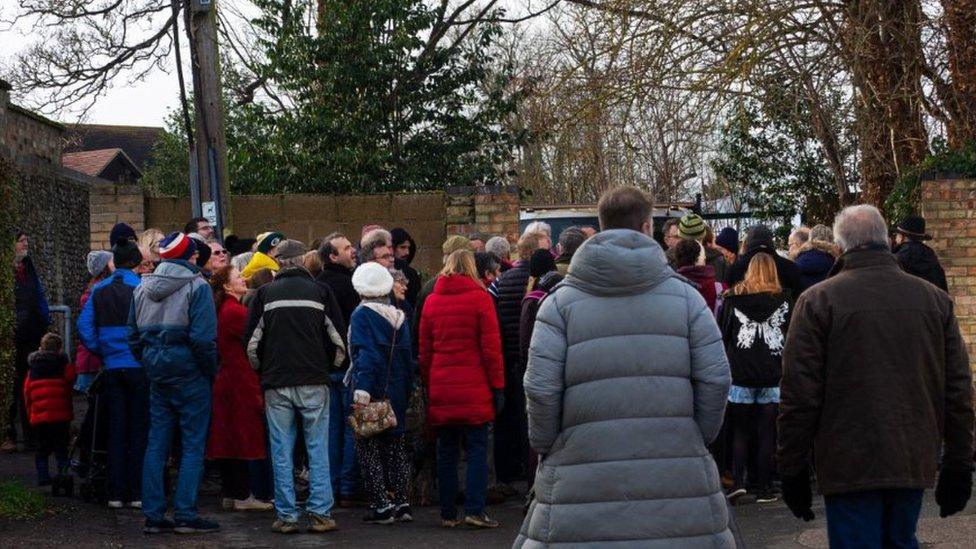
- Published6 October 2018
